The Trickster King and the Erudite Literalist
Approaching Vladimir Nabokov’s 120th birthday, Truthdig looks at his friendship and falling-out with another literary giant, Edmund Wilson.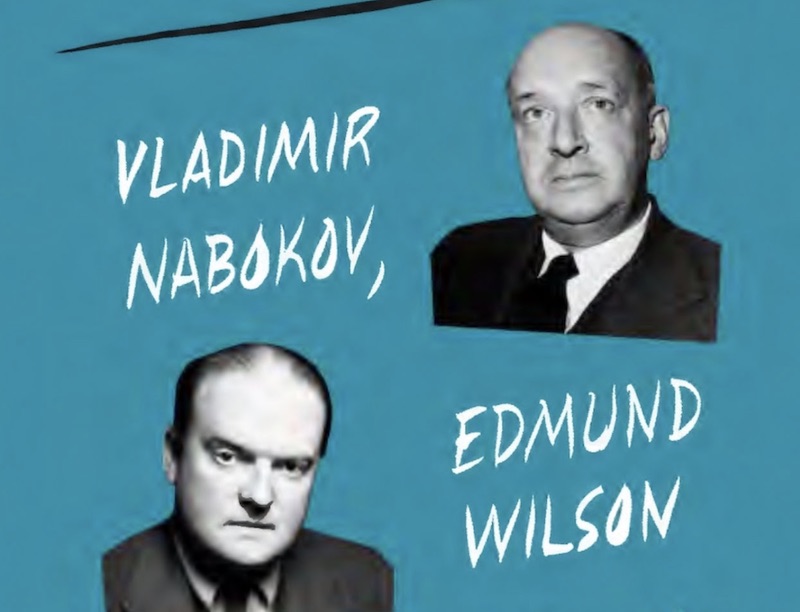 Pantheon Books
Pantheon Books
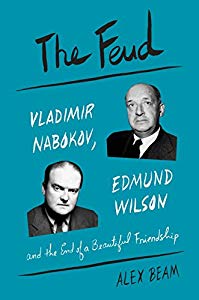
Purchase in the Truthdig Bazaar
“The Feud: Vladimir Nabokov, Edmund Wilson, and the End of a Beautiful Friendship”
A book by Alex Beam
A tribunal of the literary gods could not have selected two more mismatched friends than Edmund Wilson and Vladimir Nabokov.
Born in 1895 in Red Bank, N.J., Wilson—called Bunny by his friends, a nickname he did not care for, given to him by his mother—was the most celebrated critic and literary journalist of his time. A dyed-in-the-wool lefty who “scolded himself for his bourgeois lifestyle,” he was an editor and writer for The New Republic and later a writer for The New Yorker.
Nabokov, born in 1895 in St. Petersburg, Russia, was the greatest of post-World War II American novelists—in Gore Vidal’s lovely phrase, “the black swan of American letters.” His family fled St. Petersburg after the Bolsheviks seized power. He despised the Russian Revolution.
They met in 1940. Wilson, charmed by the émigré, helped Nabokov find teaching jobs and championed his work with editors. For years, their friendship was deep and harmonious. “Edmund was always in a state of joy when Vladimir appeared,” recalled Wilson’s third wife, novelist Mary McCarthy. “They had a ball together.”
But, “In many ways,” writes Alex Beam in “The Feud: Vladimir Nabokov, Edmund Wilson, and the End of a Beautiful Friendship,” his rich and delightful account of the friendship and falling-out of the two literary giants, they “proved to be two entirely different and contradictory people, Wilson the erudite literalist and Nabokov … the fantasist, the trickster king. The opposites attracted, and then they didn’t.”
Click here to read long excerpts from “The Feud” at Google Books.
Beam, a columnist for The Boston Globe and author of “A Great Idea at the Time,” about the Great Books phenomenon of the 1960s, takes the right attitude toward the feud of “The Feud”: “… Wilson and Nabokov had ended a quarter-century-long friendship because of a disagreement over how to translate [Alexander] Pushkin’s novel and verse Eugene Onegin.” Upon the reason for their break: “It was the silliest thing I had ever heard.”
The relationship began swimmingly when Wilson procured a Guggenheim fellowship for Nabokov. Nabokov wrote him, “Thanks, dear friend. … I have noticed that whenever you are involved in any of my affairs, they are always successful.” Their love for Russian literature inspired a collaboration on a translation of Pushkin’s story, “Mozart and Salieri,” published in 1941. A beaming Nabokov, with uncharacteristic modesty, told Wilson, “You have played Mozart to my Salieri.”
The seeds of their disruption, though, lay in their politics. Wilson “never fully surrendered his admiration for Lenin, for which Nabokov attacked him on first acquaintance.” Nabokov approved of parts of Wilson’s epic, “To the Finland Station,” “but could not stomach Wilson’s treacly depiction of Vladimir Ilyich Lenin.”
“Not even the magic of your style,” he wrote, “has made me like him.”
A more personal problem might have been Wilson’s envy of his friend’s fabulous facility with his adopted language (though Nabokov claimed that the first language he ever heard was English, “read to him from children’s books in early childhood”). When “Bend Sinister,” Nabokov’s novel about life in a totalitarian regime, was published in 1947, Wilson wrote to him with eye-opening condescension: “You aren’t good at this kind of subject, which involves questions of politics and social change, because you are totally uninterested in these matters and have never taken the trouble to understand them.” (There was something to this criticism—“My books,” Nabokov once boasted, “are blessed by a total lack of social significance.”)
But Wilson’s aversion to Nabokov’s fiction ran deeper as “… Wilson never reviewed a book by Nabokov during the first quarter century of their friendship.”
Things came to a boil in 1955 with the publication of “Lolita,” the novel Nabokov would become world famous for. He “was eager for Wilson to like it. ‘I consider this novel to be my best thing in English,’ he wrote to Wilson, ‘and though the theme and situation are decidedly sensuous, its art is pure and it’s fun riotous.” But Wilson was appalled. “Nasty subjects may make fine books, but I don’t feel you have got away with this,” he wrote of the story of the European émigré Humbert Humbert’s love of the 12-year-old American nymphet. “It isn’t merely that the characters and the situation are repulsive in themselves, but that, presented on this scale, they seem quite unreal.”
An English critic, like many, found “Lolita” to be“sheer unrestrained pornography.” Nabokov certainly expected a judgment more sophisticated from his friend, America’s leading arbiter of taste.
This was just a warmup compared with the brawl that was coming when Nabokov attempted a translation and commentary of “Eugene Onegin.” The translation was just over 250 pages; the commentary 930 plus 107 pages of index. Wilson’s negative reaction was far from isolated. Doubleday editor Jason Epstein recalled it as “… the work of a mad man. … It’s an impossible book, you can’t read it.”
Wilson’s review in July 1965—more than a year after publication—was, writes Beam with admirable flourish, “a classic of its genre, the genre being an over long, spiteful, stochastically accurate, generally useless but unfailingly amusing hatchet job. …”
Nabokov’s book—or more accurately, books, as it was published in four volumes—and Wilson’s attack spurred a lively commentary in the literary world, joined by a slew of poets, critics and translators. To paraphrase Churchill, never in the course of literary history has so much been written about a work read by so few.
Oddly enough, the nasty back-and-forth did not completely end their relationship, though they would never be close friends again. And the feud would continue from the grave. Three months after his death in June 1972, Wilson’s final book, “A Window on Russia,” was published. In it, he found even more things to quibble about regarding his former friend’s translation. “My own attempts to tease Nabokov,” Wilson wrote, a tad disingenuously, “were not recognized as such but received in a virulent spirit.”
Nabokov died five years later, making no attempt to have the final word.
Beam writes with a mischievous and sometimes malicious wit worthy of his subjects, and a sound literary judgment. I take issue, however, with one of his opinions: “Told from such a distance in time, this becomes a story of unequal combat. Nabokov is very much alive in his work, perhaps less on the night table than on college syllabus, but nonetheless he remains known to millions.”
“Not so Wilson. … Once hailed as ‘dean of American letters,’ possessed with what biographer Leon Edel called ‘a certain Johnsonian celebrity,’ Wilson is largely unknown today.”
I disagree. Regarding “Johnsonian celebrity,” one might ask whether Dr. Johnson’s fame, such as it is today, derives from his actual works, which few have read, or from those who read about him through Boswell. Wilson’s influence, like Johnson’s, was probably always far greater than his actual readership; in any event, I’ll bet that students boning up on literary modernism still start with “Axel’s Castle,” or “To the Finland Station” for the origins of communism, or “Patriotic Gore” for Civil War-era literature.
More than 40 years after his death, what English language critic has come along to take his place? Possibly his closest equal today would be Clive James, the Australian-born writer who, in “The Metropolitan Critic,” paid Wilson this homage: “It is this feeling of watching a man proving himself equal to an incontestably important task—explaining the world to America and explaining America to itself—which provides the constant excitement of Wilson’s work.”
The vision expressed in “Axel’s Castle: A Study in the Imaginative Literature of 1870–1930” (1934) is very much with us today—we still see Dickens, James, Yeats, Proust, Eliot, Joyce, Fitzgerald and Hemingway largely through his lens. As Clive James put it, Wilson’s essays on late 19th and early 20th century writers “stand as permanent criticism.”
He did have some gaps as a critic—huge, baffling, yawning gaps. By drawing a blank on Kafka, he shut himself off from one of the most important currents in literature after 1930. He could never connect emotionally or intellectually with anything Spanish, which meant he had nothing to say about Miguel de Unamuno, Federico Garcia Lorca or José Ortega y Gasset. It was another great English language critic, V.S. Pritchett, who wrote the book, “A Spanish Temper” (1954), that Wilson should have written.
Wilson never even finished reading “Don Quixote.“The most important wave in literature in the second half of the 20th century, the one from South America that gave us, among many others, Jorge Luis Borges and Gabriel Garcia Marquez, missed Wilson altogether.
Still, “The Feud” points out Wilson’s greatest failing as a critic and the most bitter irony of his career. Whether because of a flaw in his critical eye or a failing of temperament, he was blind to the greatness of a novelist he not only knew intimately but helped establish, his friend Vladimir Nabokov.
Your support matters…Independent journalism is under threat and overshadowed by heavily funded mainstream media.
You can help level the playing field. Become a member.
Your tax-deductible contribution keeps us digging beneath the headlines to give you thought-provoking, investigative reporting and analysis that unearths what's really happening- without compromise.
Give today to support our courageous, independent journalists.
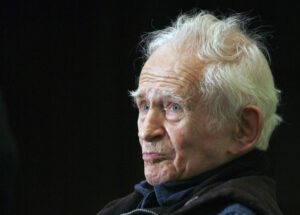
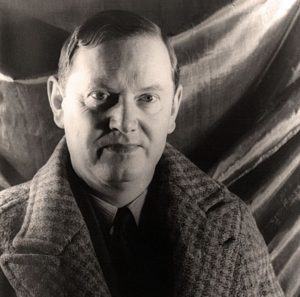

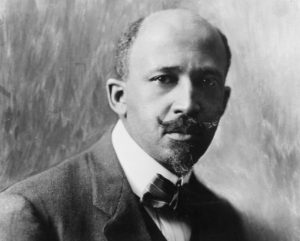


You need to be a supporter to comment.
There are currently no responses to this article.
Be the first to respond.